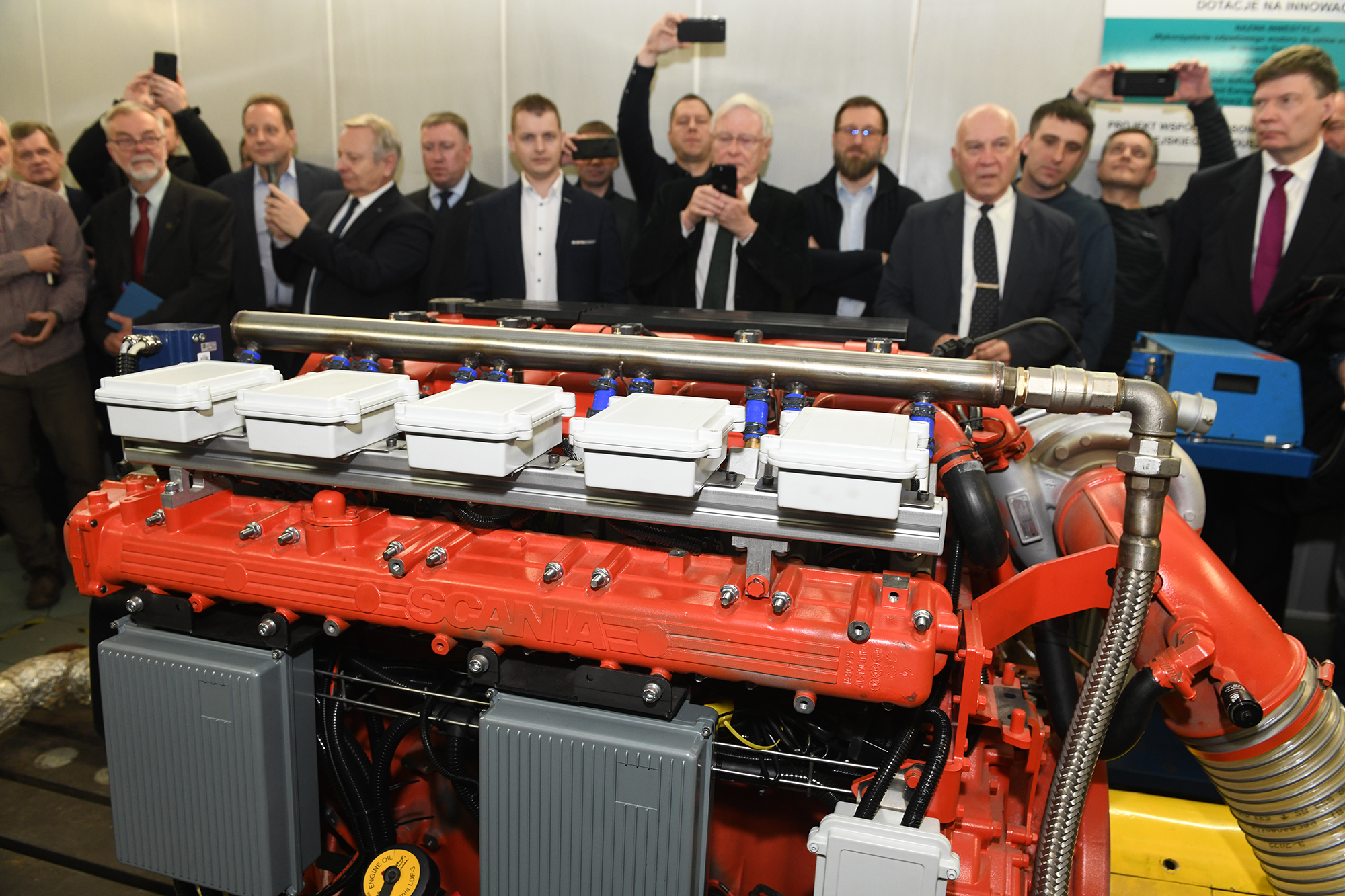Researchers at the Cracow University of Technology competed with the largest automotive companies in the world and adapted a piston internal combustion engine to be powered by hydrogen. A team of inventors from the Department of Motor Vehicles of the Cracow University of Technology, under the supervision of Professor Marek Brzeżański, presented their innovative solution to the public for the first time on January 29 2024, at the Faculty of Mechanical Engineering at the Cracow University of Technology. The presentation attracted significant interest from industry experts and the media.

– The use of hydrogen as a new energy source for transport is very promising. Firstly, this fuel is not geopolitically burdened, as we can produce hydrogen anywhere on the globe where we have access to water and electricity. If the production of hydrogen from renewable sources gets into full swing, hydrogen can be used for reciprocating internal combustion engines during the transition period of automotive evolution. The biggest advantages of this solution are the benefits for human health and the environment - no toxic exhaust emissions and no carbon dioxide emissions – emphasises Professor Marek Brzeżański. – When powered by hydrogen, the problem of vehicle range disappears, and its operation does not burden the environment. Fuel cells can be used in wheeled vehicles, rail vehicles, in maritime transport and as a drive for construction machinery. Due to its rather complex design, this propulsion source should primarily be preferred for larger passenger vehicles and all types of commercial vehicles, rail vehicles and industrial machinery. There are still a lot of challenges ahead for researchers and designers in this area, but we are on the right track – believes the expert from Cracow University of Technology.
The presentation began with a mini-lecture by Professor Marek Brzeżański on the use of hydrogen as a fuel of the future in the automotive industry, and the work carried out in this area by the University's researchers. This was followed by launching and demonstrating a piston internal combustion engine adapted to run on hydrogen in the Laboratory of the Department of Motor Vehicles of the Cracow University of Technology. CUT's scientists subjected a 5-cylinder industrial Scania engine to hydrogen power adaptation for research purposes. After the presentation, there was an opportunity to talk to the developers about the details of the technically advanced solution, research and development problems and possible directions for the development of applications based on ICE-H2 engines.
The Cracow University of Technology has been conducting research on the use of hydrogen for reciprocating internal combustion engines since the 1980s. This has resulted, among other things, in the development of a plant for the use of waste hydrogen for energy purposes and the construction of industrial hydrogen-fuelled engines for use with generators. The use of hydrogen in motor vehicle engines is the next step in the work of the team from the Department of Motor Vehicles.
The presentation of the innovative solution by inventors from the Faculty of Mechanical Engineering was attended, among others, by the University's Rector, Professor Andrzej Szarata, the Dean's authorities of the Faculty of Mechanical Engineering with the Dean Professor Jerzy Sładek at the head, members of the Scientific Council of the Institute for Automotive Research and Development BOSMAL Sp. z o. o., and numerous journalists.
View event photo gallery. Jan Zych



